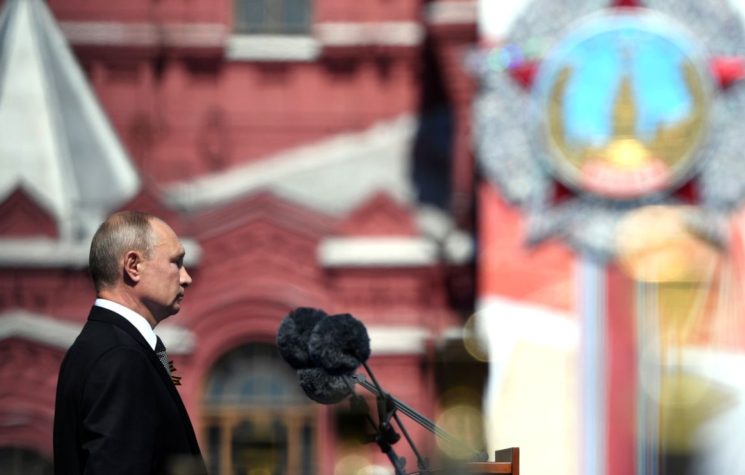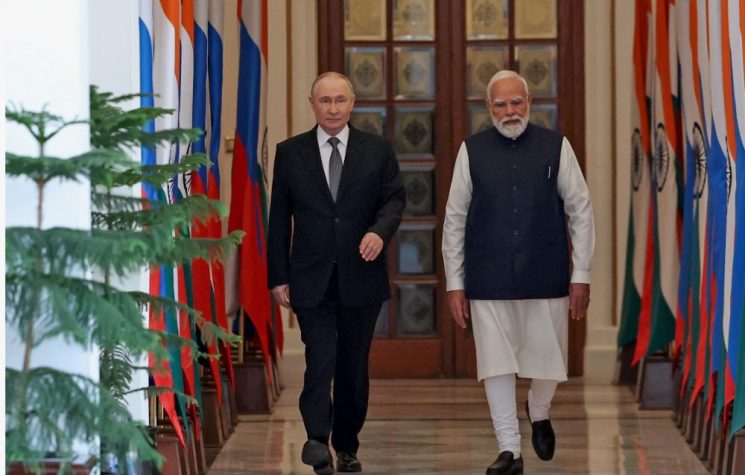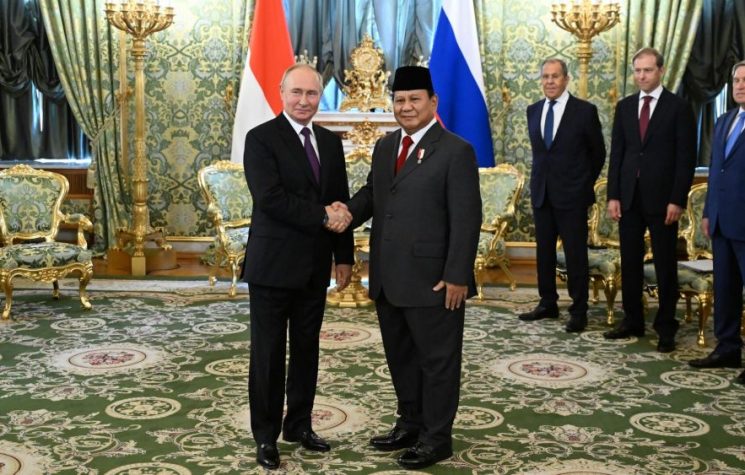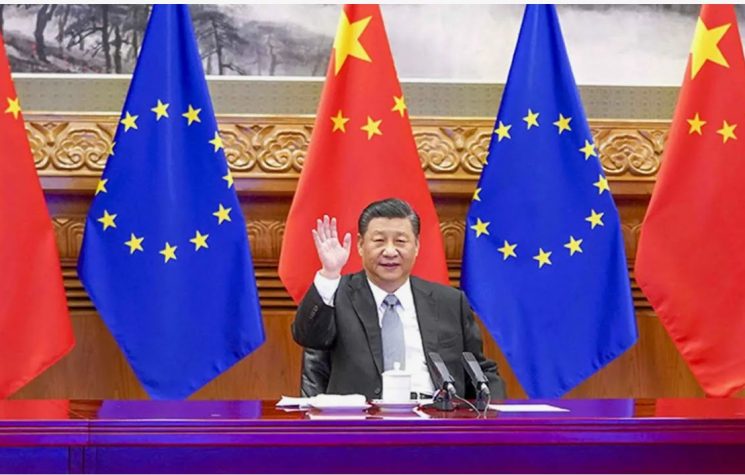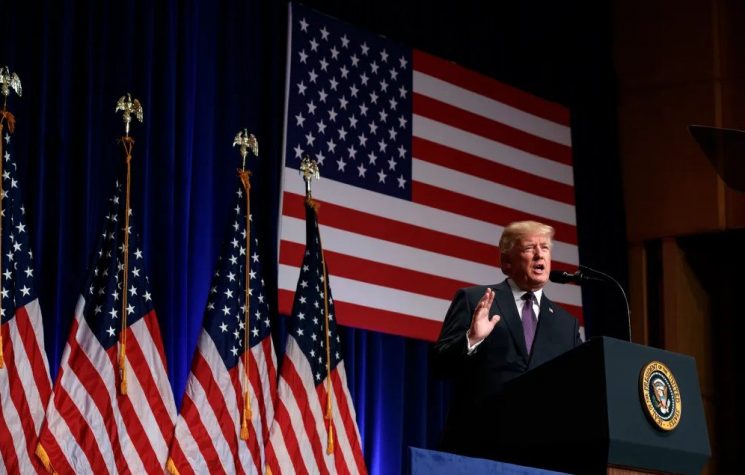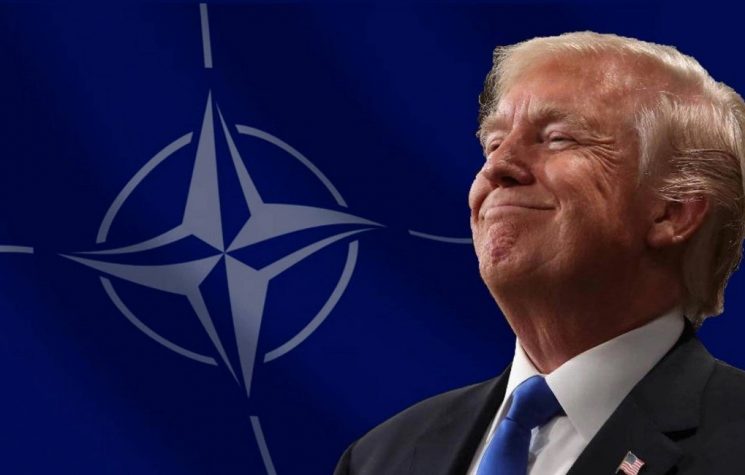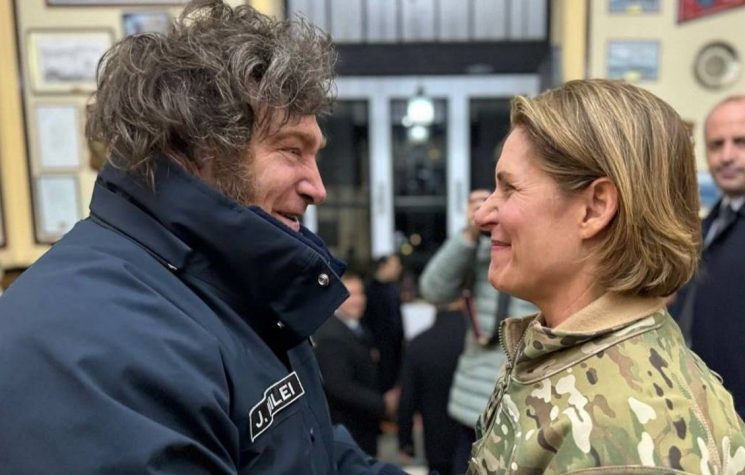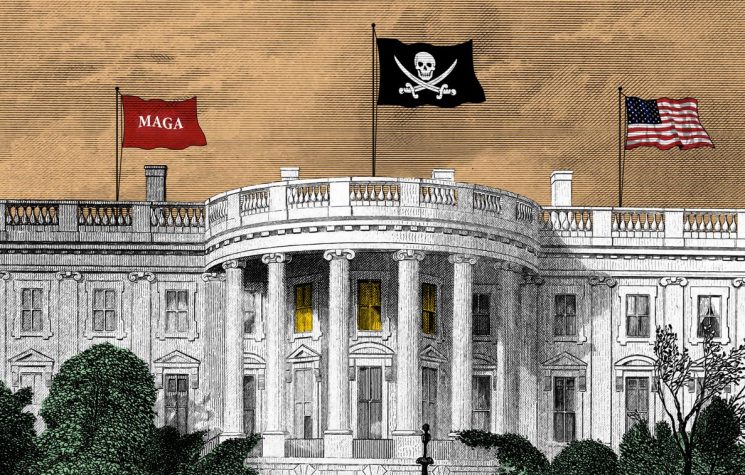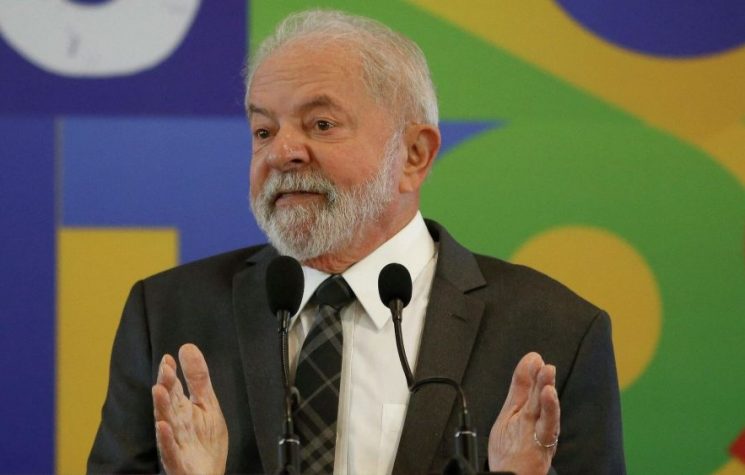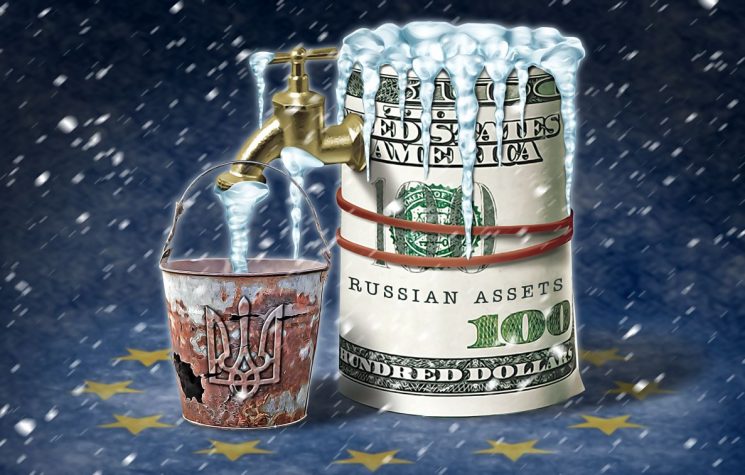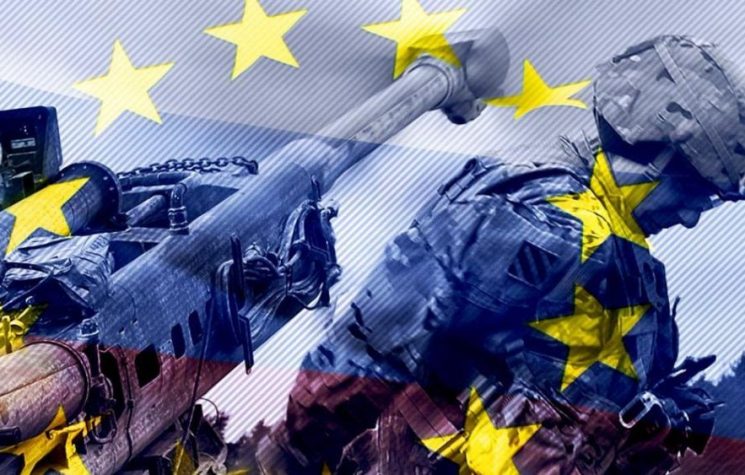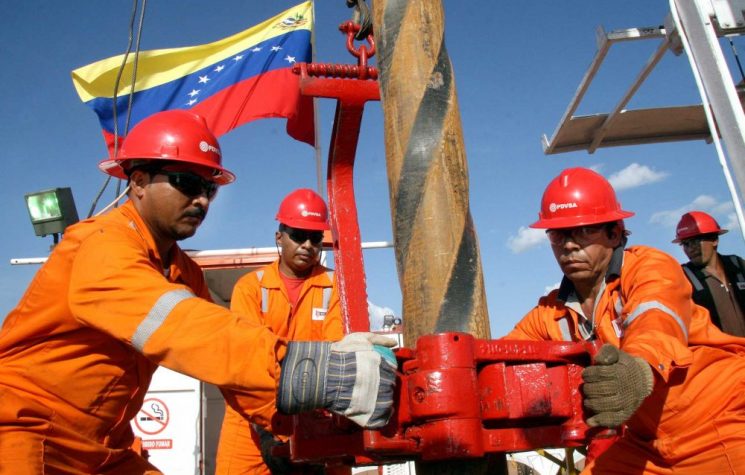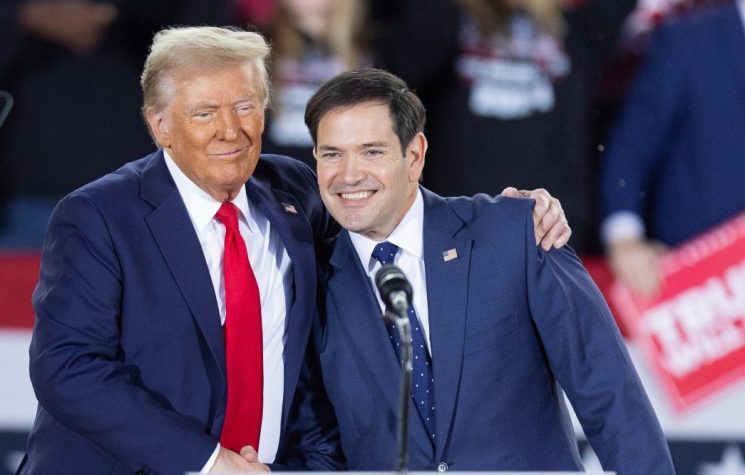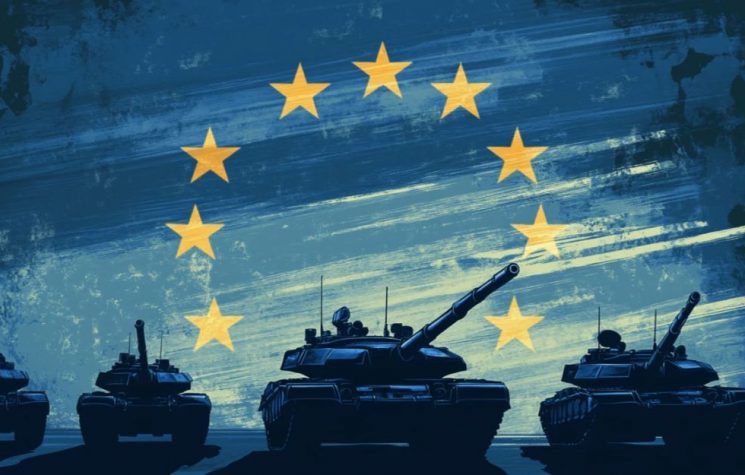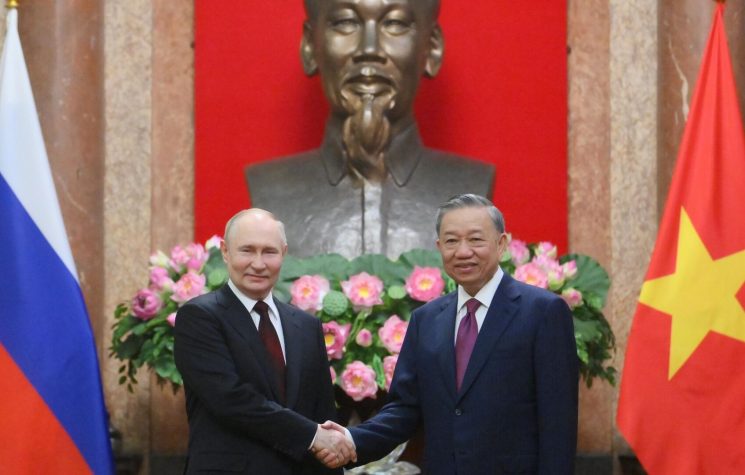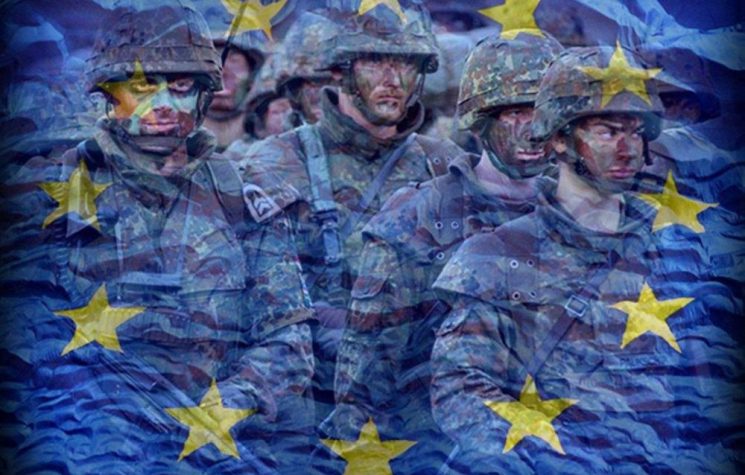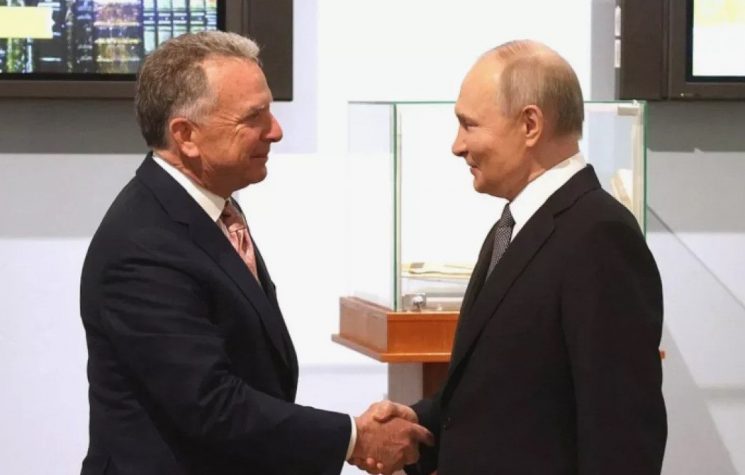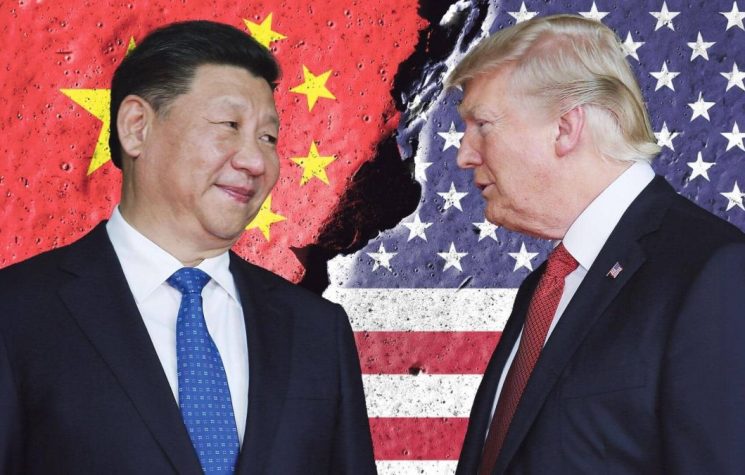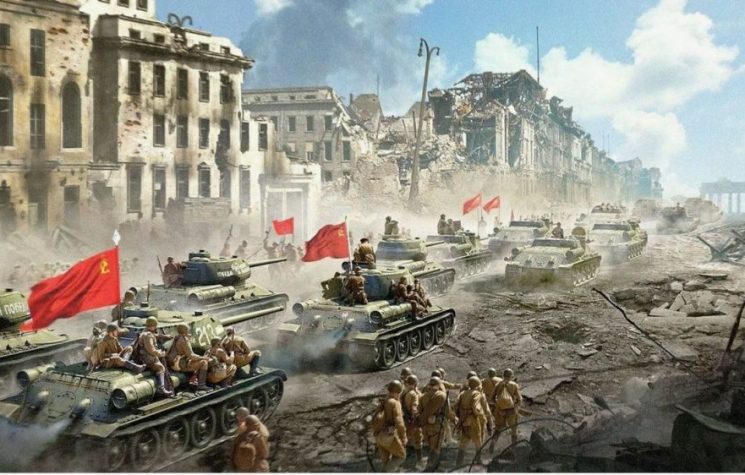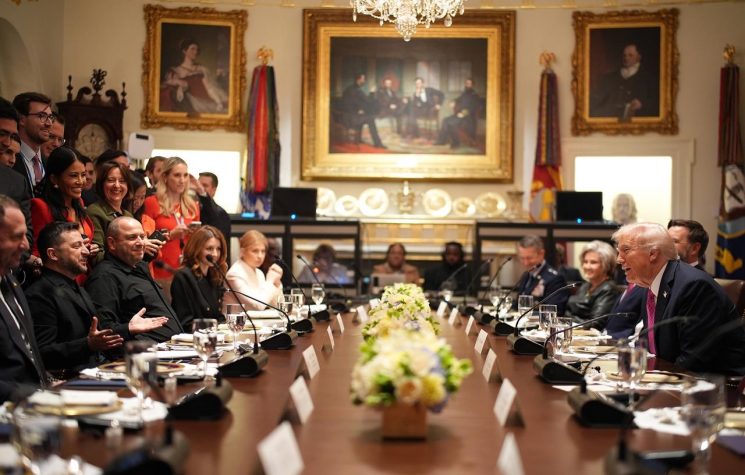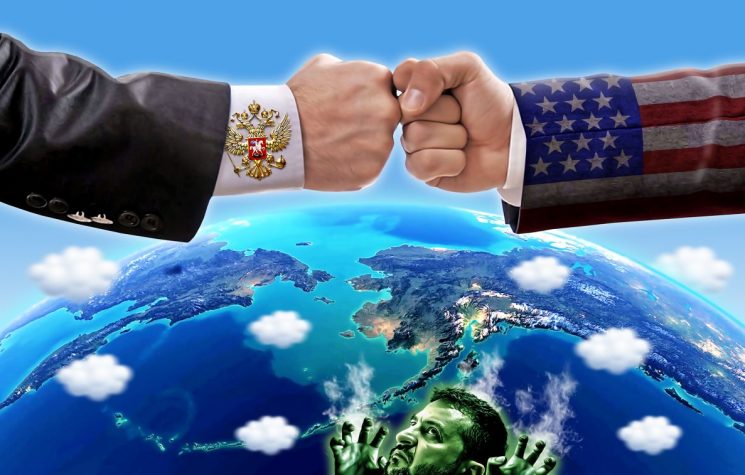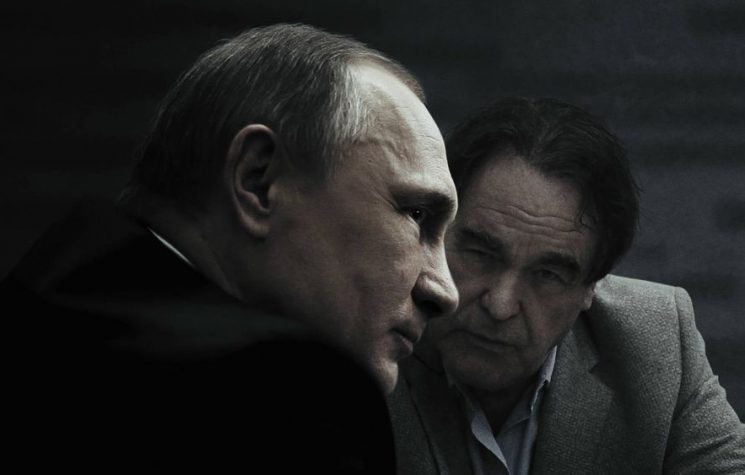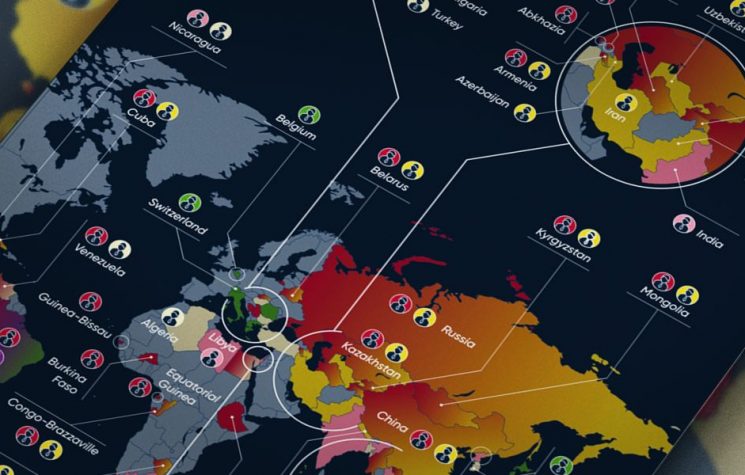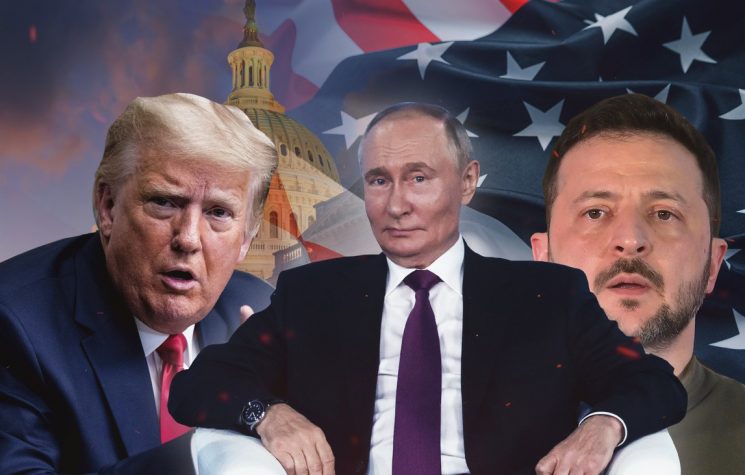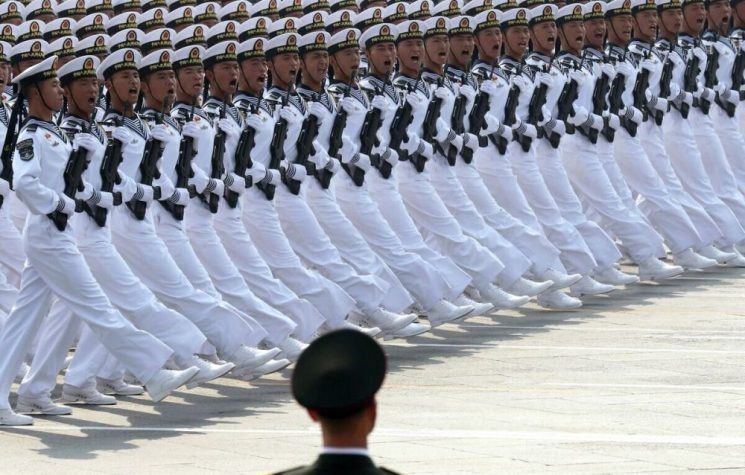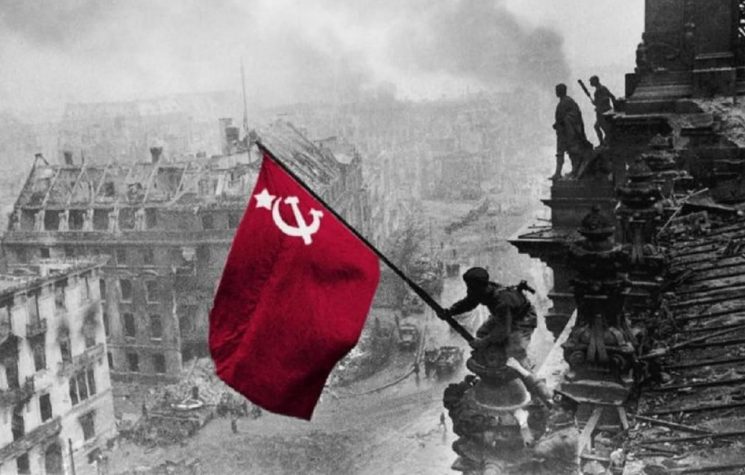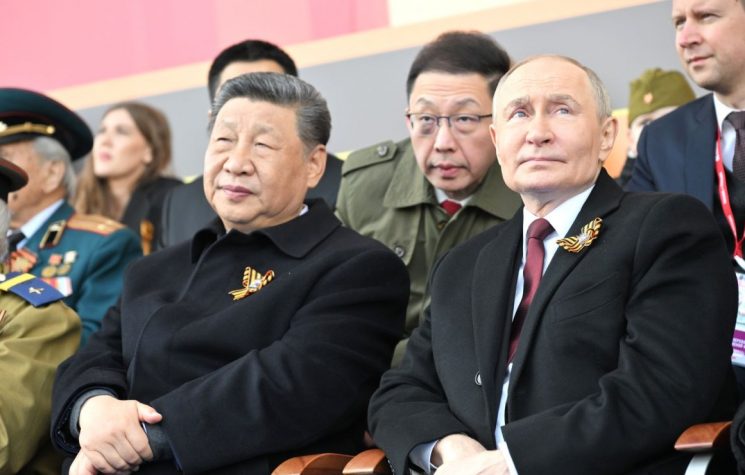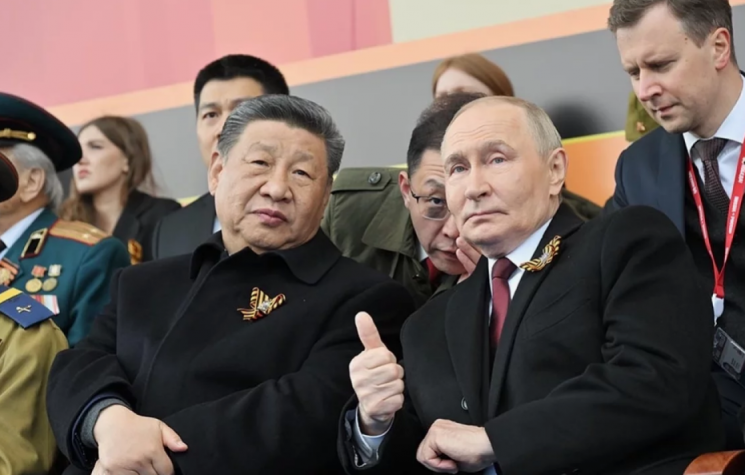During the course of President Putin’s June 24 opening speech during the Moscow Parade celebrating the 75th anniversary of WWII, the following call to action was made:
“We understand how important it is to strengthen friendship and trust between nations, and are open to dialogue and cooperation on the most pressing issues on the international agenda. Among them is the creation of a common reliable security system, something the complex and rapidly changing modern world needs. Only together can we protect the world from new dangerous threats.”
This call echoed the President’s powerful June 19 article published in the National Interest where he outlined in stark terms the powerful financier and aristocratic forces behind the rise of Hitler in the wake of WWI, and the vital need to honor those millions who died to ensure freedom and survival for future generations. In his article, Putin laid out the call for an emergency meeting among the five veto-carrying members of the U.N. Security Council which he first publicized during his January 15, 2020 State of the Union.
Although respect for Russia’ leader runs high, I have noticed that most people have still found it exceptionally difficult to see how Putin’s solution-oriented spirit is anything but naïve fancy.
After all, aren’t relations between Russia and America as low as they have ever been? Aren’t things even worse between the USA and China? How could anything good possibly come from a USA which has acted like a decadent imperial machine for decades?
Although very understandable, this inability to understand Putin’s intention is something I would like to help correct within this brief article.
To restate my position: Putin is no idiot.
Putin is a figure who is very much animated by a strong sense of moral duty which has given him the insight into both history and the future which is rare among citizens of our current epoch, and even rarer among the political class.
Putin also recognizes that the western neo-liberal system is sitting on the precipice of the worst financial meltdown in recorded history and he also knows that a new system will, by necessity be brought online. It is understood that the terms of this new system have to be fleshed out as soon as possible if a new hardcore fascist “solution” will be avoided along with the obvious world war that would soon follow.
As I have laid out in a recent report, the foundations for that new operating system will either be rooted in open system or closed system thinking.
Closed Systems in Brief
If humanity’s new system is presumed to be of a closed nature, then I am sorry to tell you that fascism will be necessitated as the ultimate governing mechanism of the elite.
The reason for this depressing fact is simple.
In all closed (ie: finite/bounded) systems, the number of people alive will always tend to consume more energy than the system itself creates over time as resources, and agricultural potential is slowly drawn down and entropy increases.
In such a world, someone has to decide who receives those ever-diminishing returns of resources, and who are the useless eaters to be sacrificed “for the greater good” of the system. This is the Hobbesian world that such misanthropes like Thomas Malthus, T.H. Huxley, Henry Kissinger and Al Gore live in. In true Pygmalion fashion, these cynics will use any and all political clout at their disposal to force society to adhere to their obsession with “balance”, “mathematical equilibrium” and perfect linear predictability. The self-professed “alphas” of these sorts of master-slave societies are committed to forcing the “might-makes-right” laws of the jungle onto humanity. In the closed-uncreative world of such a misanthrope, imbalance is considered both un-natural and evil. Imbalance is wild. It is unpredictable. It is open.
Based on their words and actions, Putin, Xi, and other leaders of today’s multipolar alliance do not think this way.

Open Systems in Brief
As a short example of my meaning, listen to President Xi describe the fundamental principle of open system economics during a 2016 speech to the CPC central committee:
“Coordinated development is the unity of balanced development and imbalanced development. The process from balance to imbalance and then to rebalance is the basic law of development. Balance is relative while imbalance is absolute. Emphasizing coordinated development is not pursuing equalitarianism, but giving more importance to equal opportunities and balanced resource allocation.”
By placing imbalance as the absolute factor, and balance as merely relative, Xi is defining a process of progress built upon creative leaps with each higher system requiring a reasonable balance/distribution of resource use, but without ever becoming reliant on that particular set of finite resources.
Putin expressed his understanding of this principle in his own way when he discussed the importance of unlimited energy and growth potential attainable through the harnessing of fusion power:
“Potentially we can harness a colossal, inexhaustible and safe source of energy. However, we will only succeed in fusion energy and in solving other fundamental tasks if we establish broad international cooperation and interaction between government and business, and join the efforts of researchers representing different scientific schools and areas. If technological development becomes truly global, it will not be split up or reined in by attempts to monopolize progress, limit access to education and put up new obstacles to the free exchange of knowledge and ideas.. With their help, scientists will be able to literally see nature’s creation processes.”
Programs like China’s Belt and Road Initiative (and its space, polar, health and information extensions) has not only won over 135 nations to its framework but this program is entirely rooted in open system thinking. Within this framework’s operating system, there is no presumed fixed limit to resources or endpoint to the progress that nations can create if certain principles are adhered to.
At the heart of these vital principles is found the moral concept of “win-win cooperation” or as China’s former president Sun Yat-sen called it in his Three Principles of the People, the Principle of “Right makes Might”. Sun Yat-sen understood in 1924, as Presidents Xi and Putin do today, that if a nation adheres to win-win/right-makes-might thinking, then that nation will never lose the Mandate of Heaven (Tianxia). In the Western matrix, this principle is expressed beautifully by the Principle of Westphalia which established the first modern nation states in 1648 premised around the principle of the “Benefit of the Other.” When Kissinger, Brzezinski or Blair speak of a “post-Westphalian age”, it is this fundamental principle that they are attacking more than the mere existence of national borders.
This principle is again reflected in the UN Charter, which was designed by the anti-colonial President FDR “to achieve international co-operation in solving international problems of an economic, social, cultural, or humanitarian character, and in promoting and encouraging respect for human rights and for fundamental freedoms for all without distinction as to race, sex, language, or religion and to be a center for harmonizing the actions of nations in the attainment of these common ends.”
FDR’s early death and the British-Deep State takeover of America over his dead body prevented these ideals and open system dynamics from ever coming to life.
As long as nations are empowered to stand on their own feet, develop full spectrum agro-industrial economies and if people benefit by developing new skillsets, and if new technologies and new discoveries in science are encouraged rather than sabotaged (as has been the practice under the Might-Makes-Right Darwinian laws of gobble-ization), then potential for human perfectibility is as boundless as our ability to discover, create, plan and inspire future generations.

Some Points of Mutual Interest
Now there are an array of domains which all nations of the U.N. Security Council can focus on during this period of intense crisis that would tie civilization’s interests into open system thinking benefiting all nations and people. If the USA has even a modicum of sanity at this late stage, then Trump will give Pompeo and other neocons the Bolton/Bannon treatment and make Putin’s offer a top priority for the sake of the USA’s very survival as a nation, and humanity more broadly.
To end this paper, I wish to outline several of the most fruitful topics to be tackled at upcoming summits which will best define the coming century (or more) of cooperation and growth:
Space Diplomacy, Asteroid Defense, Arctic and Far east development, energy, and health infrastructure.
Space Diplomacy
America’s successful return to manned space flight on May 28th was more than just another space launch, but rather one important component of a much larger commitment illustrated by the May 15 Artemis Accords to not only send humans back to the Moon for the first time since 1973, but to permanently develop a Lunar and Mars-based economy with a focus on international cooperation. This outlook dovetails Russia’ commitment for permanent lunar colonization and resource development which will start with Luna 25 in 2021 followed by Luna 26, 27 and 28 soon thereafter with a plan to have a permanent manned base in early 2030. Describing Russia’s support for this initiative, Roscosmos Chief Dimitry Rogozin stated: “I can imagine what kind of feeling they had all these nine years, having no opportunity to deliver their astronauts to the ISS. It is a matter of honor and national pride. Let us wish them professional success.” The USA and Russia are also close partners in the ISS and Russia manufactures the strategic RD-180 and RD-181 engines used in American launch vehicles.
Both the USA and Russia are partners on the upcoming Lunar Gateway station which will soon orbit the Moon and serve as an important element in the new space-based infrastructure used both in mining and Mars launches. Although banned from the ISS and U.S.-cooperation since 2011, China has become a pioneer in space with a tight alliance with Russia on lunar cooperation signed in September 2019. China’s own Chang-e program has resulted in landing on the far side of the moon with plans for colonization in the coming decades as well as the development of Helium-3 mining for fusion power.
Asteroid Defense
Faced with the two-fold threat of NATO military encirclement on earth and asteroid collisions from abroad, Rogozin made headlines in 2011 by reviving the concept for a joint U.S.-Russia controlled defense system first announced by President Reagan’s 1983 Strategic Defense Initiative. Rogozin’s 2011 version (titled the Strategic Defense of Earth) now called for turning humanity’s arsenal of atomic weapons away from each other and towards the grave danger of asteroid collisions for which we are woefully unprepared. Introducing this topic into the emerging joint U.S/Russia working groups on arms control set to begin in mid-July would contribute in powerful non-linear ways that cannot be calculated by any linear standard of measurement. This vision has been echoed by China as well as the European and Japanese space agencies.
Arctic and Far East Development
In 2007, Russia revived a 150-year-old idea that once had the support of leading republicans of Lincoln’s 19th century America to unite rail lines in America and Eurasia through the Bering Strait crossing in the form of a 65 mile tunnel. Russia again re-emphasized its commitment to building this $64 billion project in 2011. With China’s Polar Silk Road having extended the traditionally east-west development corridor into the Arctic and as China and Russia have increasingly merged the Belt and Road Initiative with the Eurasian Economic Union, this new development dynamic offers incredible economic opportunities for all Arctic nations and also an escape from military confrontation.
Putin’s Far East Development Plan
Part in parcel with this initiative comes President Putin’s Far East development plans as a “21st century national priority” for Russia. The development of new cities, mining, transport corridors and oil and natural gas of Russia’s Far East represent one of the greatest boons for economic investment during the coming century and already features an array of partners from China, Japan, South Korea, India and other APEC nations. Putin’s 2018 proposal that the USA join in this project of win-win cooperation is important not only because it would build trust, create business opportunities and re-establish the lost art of long-term thinking, but would also help link up western businesses into partnership with the Asia Pacific development process now being shaped by China’s Belt and Road Initiative. Although tensions have been enflamed to schism China and India from cooperating directly on the BRI, India’s embrace of Russian Far East development investments has created a non-linear flank which can help bring these two Asian giants into harmony.
Only the tip of the iceberg…
Overall, there are many other points of common benefit shared by nations committed to a Multi-Polar “open system” future including education/cultural exchange, fission/fusion energy research, counterterrorism, and COVID-19 response coordination. On this last threat, the issue of a new world healthcare system has become an increasing focus of discussion, especially as nations set their sights on the post-pandemic world order.
Here, Russia, China and the USA can play a leading role to ensure a modern and equitable healthcare architecture for nations of the developing sector which has found itself so vulnerable when faced with the threat of world pandemics. Africa, South America, Asia and beyond require vastly improved healthcare services, hospitals, training, and medical technology worthy of the 21st century. Most importantly the world needs preventative systems such as sanitation, clean water, food sovereignty and electricity if COVID-19 and all future threats to world health shall be solved once and for all.
If Russia, America, China and other nations of the UN Security Council and BRICS were to apply their best minds to solving these problems rather than fall into a new arms race, then not only would either country benefit immensely, but so too would humanity more broadly.
Putin’s olive branches have piled up over recent years and there is no sign that he intends on permitting himself to be the cause for history’s repetition into war, and if we are smart, then we will do everything in our power to ensure that this discussion not only occurs, but that open system economics prevails.








